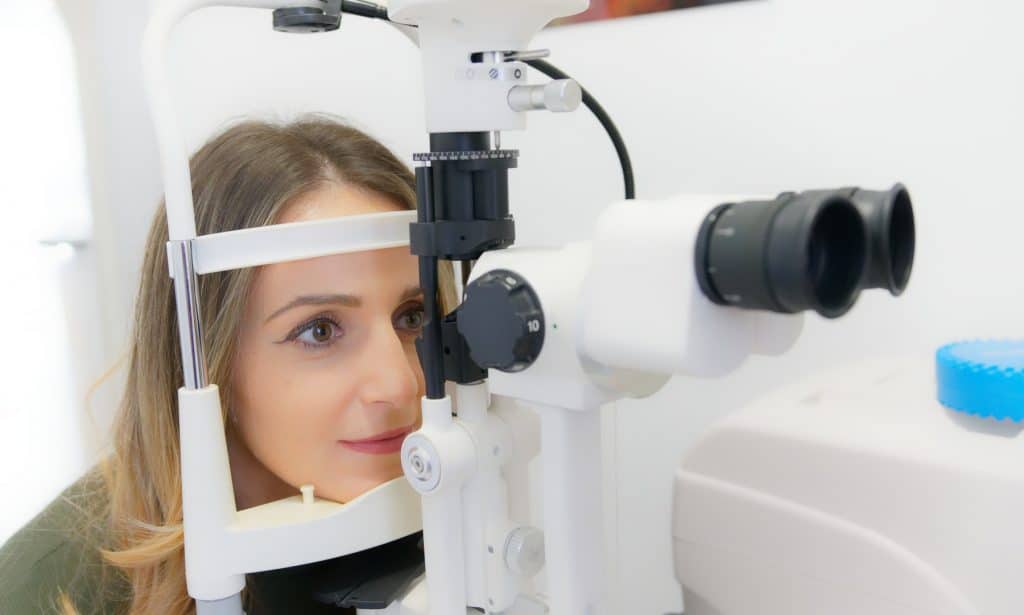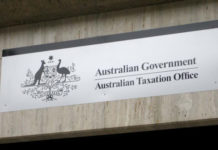
Medicare is the cornerstone of Australia’s healthcare system, providing access to a wide range of medical services for Australian residents and certain international visitors. For backpackers traveling to Australia, understanding Medicare and how it works is crucial to ensuring you have access to necessary medical care during your stay. This article will provide a comprehensive overview of Medicare, with special attention to UK passport holders and other English-speaking travelers.
Table of Contents
What is Medicare?
In Australia, the health insurance system is called Medicare. It is similar to the NHS. It is the Commonwealth Government’s universal health insurance scheme, founded in 1984.
Medicare is Australia’s publicly funded healthcare system, which covers a significant portion of medical costs for services such as doctor visits, hospital treatments, and prescription medications. It aims to provide all Australians, as well as eligible visitors, with affordable and accessible healthcare.
How does Medicare work?
Medicare covers a range of services, including:
- Consultations with doctors (GPs) and specialists
- Treatment and accommodation in public hospitals
- Tests and examinations needed to treat illnesses, including X-rays and pathology tests
- Eye tests performed by optometrists
- Most surgical and other therapeutic procedures performed by doctors.
In general, dental costs, alternative medicines and drugs are not reimbursed (except under certain conditions).
How is Medicare funded?
The Australian health system is partially funded by an income tax surcharge. All employees in the country with an income above a certain threshold pay a Medicare levy (2% of salary). The contribution is deducted directly from the salary, the Medicare Levy.
Note that people with higher incomes and no private insurance pay a higher Medicare levy.
Temporary residents are exempt from the Medicare Levy. In order to apply the exemption, you have to mention it on your tax return at the end of the tax year.

Who is eligible for Medicare?
Eligibility for Medicare extends to:
- Australian citizens and permanent residents
- Residents from countries with reciprocal healthcare agreements, including the United Kingdom, New Zealand, Ireland, Sweden, the Netherlands, Finland, Italy, Belgium, Malta, Slovenia, and Norway.
Medicare reimbursements
The Medicare reimbursement percentage is based on a standard list of charges for medical services (Schedule fees). In practice, if doctors are licensed, they use the fees set by the Australian health system.
Despite this, doctors are free to set their own fees for consultations and treatments given. Australia’s health insurance will then reimburse 85% of the fee charged. The patient will have to pay the difference (gap fee) between the Medicare rate and the rate charged by the doctor out of their own pocket. However, many doctors follow the Australian Medical Association’s suggested fee list. This list has been indexed to keep up with costs and recommends higher fees than those covered by health insurance.
If you are admitted to a public hospital and are considered a ‘public patient’, you will not be charged anything. In this case, everything is 100% covered by the Australian health system. If you go to a hospital, public or private, as a ‘private patient’, Medicare will only pay 75% of the cost. The rest will be paid out of pocket or by your supplementary health insurance if you have one.
In any case, you will need to present your Medicare card at all medical appointments or in case of hospitalisation.
What is Bulk Billing?
Bulk-billing is when the doctor follows the Australian health system’s fee schedule (either 85% or 100% of the fee schedule) as full payment for the consultation. You don’t have to pay anything out of pocket. This includes X-rays, blood tests, vaccinations, tests and other medical examinations. Please note that minors are always bulk-billed.
If you are bulk-billed, your Medicare card will be run through the system and you will have to sign a form. You do not have to pay anything. The doctor collects the cost of the consultation directly from the Australian health system. Currently, the grid rate for a standard consultation with a general practitioner is $42.85. As there is a large gap between the Medicare reimbursements that doctors can recover and the costs of running a medical practice, the majority of GPs do not bulk-bill.

Medicare for UK Passport Holders
As a UK passport holder, you are entitled to access Medicare services under the Reciprocal Health Care Agreement (RHCA) between Australia and the United Kingdom. This agreement allows UK visitors to receive necessary medical treatment while in Australia, ensuring they are not left without essential healthcare services during their travels.
What is covered?
UK visitors are entitled to:
- Free treatment as a public patient in a public hospital
- Subsidised treatment by doctors through Medicare
- Subsidised medications under the Pharmaceutical Benefits Scheme (PBS).
How to enroll
To access Medicare, UK passport holders need to enroll in Medicare at a local Medicare office. You will need to provide:
- Your passport
- Proof of your UK residency
- Your visa information
- A document proving your dates of arrival and departure from Australia (e.g. your airline tickets).
Once enrolled, you will receive a Medicare card, which you should carry with you and present when accessing medical services.
Medicare for Other English-Speaking Travelers
Travelers from other countries with reciprocal healthcare agreements with Australia can also access Medicare services. The process and coverage are similar to those for UK passport holders. It’s essential to check the specific details of your country’s agreement to understand what is covered and how to enroll.
How to Use Medicare
Visiting a Doctor
When you visit a doctor, you can choose between bulk billing and private billing:
- Bulk Billing: The doctor bills Medicare directly, and you won’t have to pay anything. Not all doctors offer bulk billing, so it’s essential to check beforehand.
- Private Billing: You pay the doctor upfront and then claim a portion of the fee back from Medicare. The amount refunded depends on the service and the fee charged by the doctor.
Hospital Treatment
If you are treated as a public patient in a public hospital, Medicare covers your treatment and accommodation costs. If you choose to be treated as a private patient in either a public or private hospital, Medicare will cover 75% of the Medicare Benefits Schedule (MBS) fee for services and procedures. You will need to cover the remaining costs, including hospital accommodation and other charges.
Prescription Medications
Medicare, through the Pharmaceutical Benefits Scheme (PBS), subsidises a wide range of prescription medications. When you purchase PBS medications, you will pay a lower price, and Medicare covers the rest.
Travel Insurance
While Medicare provides access to essential healthcare services, it’s important to have comprehensive travel insurance. Medicare does not cover:
- Ambulance services
- Dental treatment
- Physiotherapy, occupational therapy, speech therapy, eye therapy, chiropractic services, podiatry
- Acupuncture (unless part of a doctor’s consultation)
- Glasses and contact lenses
- Hearing aids and other appliances
- Medical costs incurred outside Australia.
Travel insurance ensures you are covered for these services and other potential expenses, such as repatriation to your home country in case of a severe medical condition.
Future reforms of the Australian health system
Australia is one of the countries with the best health systems in the world. It ranks 6th behind South Korea, Taiwan, Denmark, Austria and Japan.
However, like many healthcare systems around the world, Medicare has been experiencing major difficulties in recent years. It is one of the issues that regularly comes to the forefront of Australian politics. A task force, comprising GPs, nurses, paramedics and academic experts, has been set up by the government to find ways to strengthen Medicare in Australia and repair a system that many believe is in crisis.
Several ideas have already been put forward at the beginning of 2023. These include launching a reform to improve access to care and putting more money on the table for a sustainable system. The population is getting older and sicker, while many Australians living in rural areas are disadvantaged. This working group also wants to encourage multidisciplinary care to support GPs. GPs often find themselves overwhelmed and unable to treat each of their patients properly. Improving digital patient data was also mentioned, as was the need to find more carers in remote areas.
In the end, the issues facing the Australian health system are the same as others around the world, despite its ranking as one of the best coverages in the world.
Frequently asked questions
If you are not an Australian citizen or permanent resident, you will not benefit from this health system. It is therefore imperative that you take out private insurance during your stay. However, you can still get medical treatment in Australia without insurance, you will just need to have some money in your wallet. You can find many articles on various insurance options on our site: Travel insurance
If you get sick in Australia and you don’t have Medicare, be aware that the fees are quite high (hence the importance of having good insurance). You can expect to pay between AU$80 and AU$100 for a short consultation (10 to 15 minutes). Beyond 15 minutes, the price of the consultation can increase to almost $200. Prices vary depending on the doctor you go to see or the hospital where you will be treated. Make sure you know in advance. Find out more: How to get medical treatment in Australia



























Thank you so much for sharing the post with everyone. People can easily understand the terms of this health care system. The post is full of information, and it talks with the process of signing up with this program, what is covered under the policy and also how it is funded. People can really get proper help after reading the post.
i am from Italy hello. Can you help me translate? /rardor
Hey, You should be fine by using google translate. Just copy and paste the content you need to translate 😉